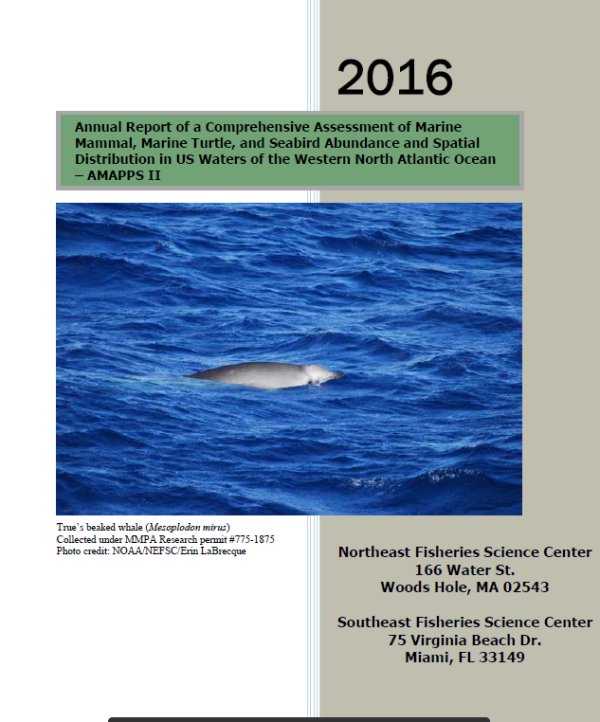2016 Atlantic Marine Assessment Program for Protected Species (AMAPPS) report available
Posted on May 22, 2017
The Atlantic Marine Assessment Program for Protected Species (AMAPPS) is a comprehensive multi-agency research program in the US Atlantic Ocean, from Maine to the Florida Keys. Its aims are to assess the abundance, distribution, ecology, and behavior of marine mammals, sea turtles, and seabirds throughout the US Atlantic and to place them in an ecosystem context (http://www.nefsc.noaa.gov/psb/AMAPPS/). This information can then provide spatially explicit information in a format that can be used when making marine resource management decisions and will provide enhanced data to managers and other users by addressing data gaps that are needed to support conservation initiatives mandated under the Marine Mammal Protection Act (MMPA), Endangered Species Act (ESA), National Environmental Policy Act (NEPA) and Migratory Bird Treaty Act (MBTA).
To conduct this work NOAA’s National Marine Fisheries Service (NMFS) currently has inter-agency agreements with the Bureau of Ocean Energy Management (BOEM) and the US Navy. The 2016 products of these inter-agency agreements are being developed by NMFS’s Northeast Fisheries Science Center (NEFSC) and Southeast Fisheries Science Center (SEFSC).
Because of the broad nature and importance of the AMAPPS work, AMAPPS has evolved beyond the above agencies into larger collaborative programs involving researchers from a variety of domestic and international organizations. These collaborative efforts have the benefit of increasing the amount of funds and personnel for field and analytical work.
This report documents the work conducted by NMFS during 2016.


